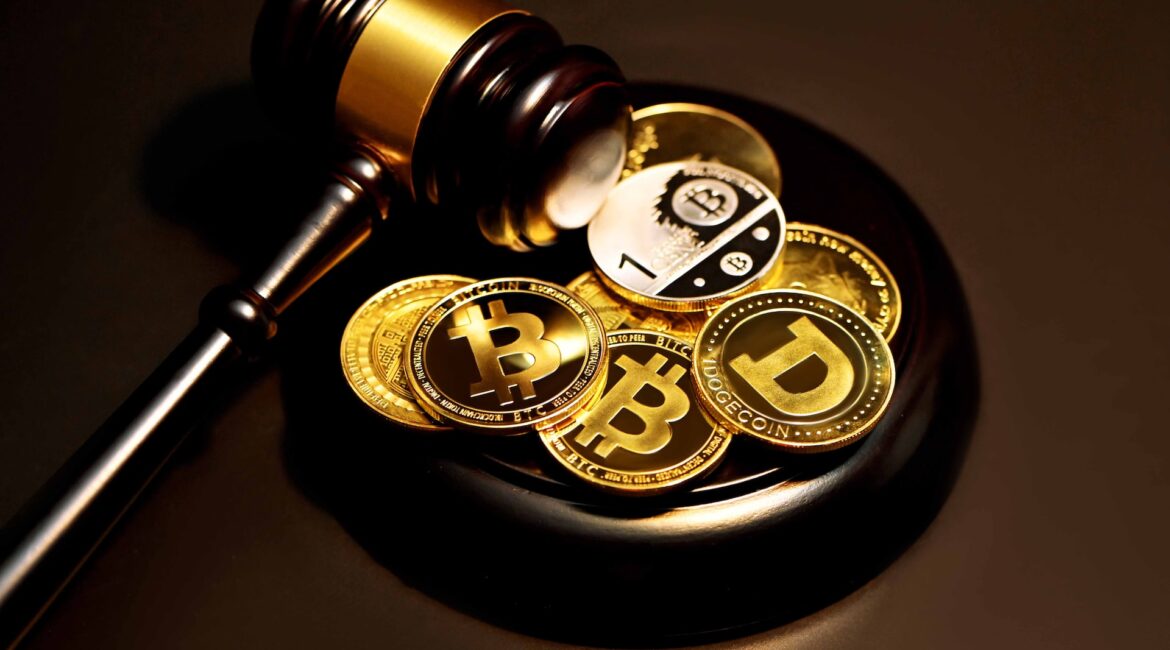This article is the first article for the series of “Crypto Assets Taxation in Taiwan”.
Photo by Kanchanara on Unsplash.
1. 2013 Joint statement by FSC and Central Bank
At the end of 2013, Taiwan’s Financial Supervisory Commission (the “FSC”) and Central Bank jointly made a public statement, which decides the legal nature of Bitcoin as high-risk merchandise, later further applied to other crypto assets and still valid now.
According to the 2013 joint statement(full translation see attached[FN1]), the Bitcoin is not a currency but a highly speculative digital “virtual merchandise” and lacks a protection mechanism by special regulations. Taiwanese people are advised to pay special attention to related property, theft and money laundering risks when transacting Bitcoins. Thereafter, the FSC continues to release public statements and reiterate the same position that Bitcoin as well as other kinds of digital currencies and derivatives are not legal currency but high-risk virtual merchandise[FN2].
2. ICO regulation and Money Laundering Control
In 2017, the FSC noticed the development of digital token and adopted the same position with US SEC that the legal nature and corresponding supervision of an “Initial Coin Offering”(ICO) shall be decided by case-by-case basis. Then in July 2021, the FSC expanded the anti-money-laundering mechanism to include the virtual assets exchanges. According to the special regulations governing the supervision of virtual currency for the purpose of anti-money laundering, the exchanges managing crypto assets transactions in Taiwan are treated the same as regulated financial institutions. These exchanges are obliged to engage in anti-money laundering control measures, such as identification of customers (KYC), keep transaction records and file suspicious transaction reports(STR). Moreover, it is also first time in Taiwan that the term of “virtual currency” firstly defined in legal system. “Virtual currency” is defined as “digital representation of value with the use of cryptography and distributed ledger technology or other similar technology that can be digitally stored, exchanged, or transferred, and can be used for payment or investment purposes.”[FN 3 ]
3. FTX incident brought the clarification in tax perspective
In the middle of November 2022, FTX fell into bankruptcy and plagued worldwide investors, including thousands from Taiwan. The Ministry of Finance (MOF) issued a public statement[FN 4] explaining the losses incurred by purchase, sale and exchanges of virtual assets either with domestic exchanges or with foreign exchanges are deductibles against personal and corporate capital gains. Although this 2022 November MOF statement would not bring great tax consequence, it is the first official position given in tax perspective and extends the same position of FSC, treating crypto assets as merchandise, and tax their transactions accordingly.
-
FN1: Translation of 2013 joint statement (Original Chinese Text)
Bitcoin is not a currency. Recipients of Bitcoin must be aware of the risks involved.In order to protect the rights and interests of consumers, maintain the stability of the financial and payment systems, and ensure the status of the New Taiwan Dollar as a national legal currency, the Central Bank and the Financial Supervisory Commission call on the public to pay attention to the risks associated with accepting, trading or holding Bitcoin, hereby explain as follows:1. Bitcoin is not a currency(1) Bitcoin is not a medium of exchange generally accepted by the public, and its value is unstable. It is difficult to function as a unit for accounting and value storage, and it does not have the characteristics of a real currency.(2) Bitcoin is not issued by any national monetary authority and not accepted as a legal tender and has neither reserve for issuance and no redemption guarantee, and the Bitcoin holder must bear the risk that it may not be redeemed or circulated.(3) According to the provisions of the Central Bank Law, the currency issued by the central bank is the national currency, which is legally, and compulsory accepted for all domestic payments.2. Bitcoin is a highly speculative digital “virtual merchandise” and lacks a transaction protection mechanism by special laws and regulations. If Taiwanese people accept, trade or hold Bitcoin, the following risks must be aware of:(1) The price fluctuates greatly, which may cause investment risk or exchange risk.(2) Bitcoins stored in electronic wallets are vulnerable to hackers, virus attacks and vanishing risks.(3) The trading platform with which you trade may be hacked, go bankrupt maliciously, or be shut down by the government due to illegal transactions.(4) The risk of becoming an illegal criminal instrument for drug trafficking, money laundering, and smuggling etc.(5) The risk of lack of special legal protection.3. The central bank and the Financial Supervisory Commission will, based on the functions and powers of the Central Bank Law (Articles 2 and 13) and the Organic Act Governing the Establishment of the Financial Supervisory Commission (Articles 1 and 2), deal with financial institutions that handle Bitcoin-related businesses at an appropriate time, and take necessary measures in accordance with relevant laws and regulations. - FN2: FSC’s continuous statements reminding investors of risks of crypto assets.
-
-
金管會呼籲民眾審慎評估虛擬資產的風險,2022-03-04
-
金管會再次呼籲社會大眾審慎評估虛擬資產的風險,2022/1/26
-
金管會提醒社會大眾有關虛擬資產的相關風險.2021/4/20
-
金管會提醒社會大眾有關虛擬資產之相關風險,2020/7/6
-
金管會再次提醒社會大眾投資比特幣等虛擬商品的風險,2017/12/19
-
- FN3: Regulations Governing Anti-Money Laundering and Countering the Financing of Terrorism for Enterprises Handling Virtual Currency Platform or Transaction
- FN4: MOF 2022/11/18 statement.




